Complimentary worldwide shipping on orders over $400 · No import tariffs for most countries
Complimentary worldwide shipping on orders over $400 · No import tariffs for most countries
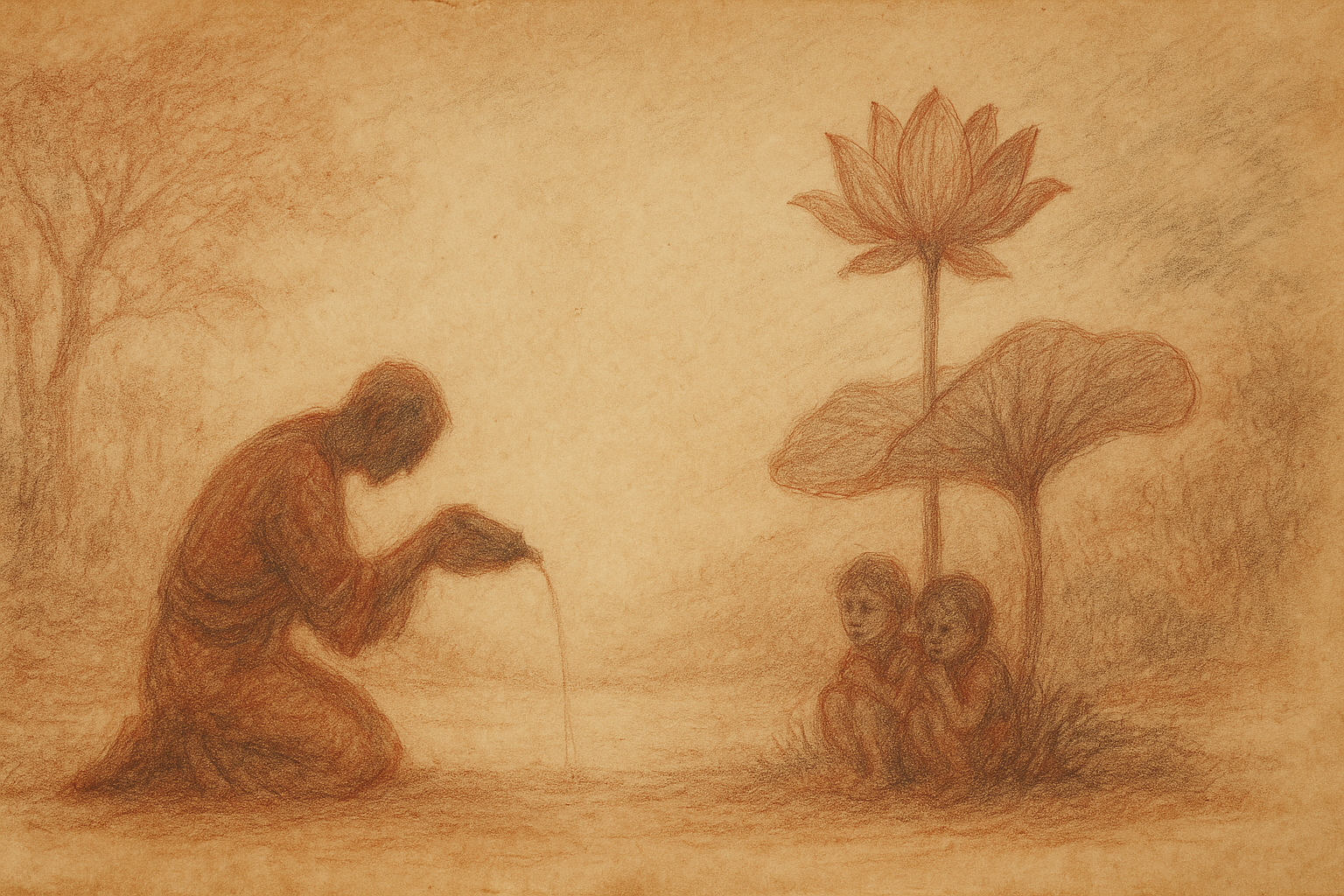
The Water That Never Reaches the Ground
From the myths of renunciation and sacred return
He poured the vow through trembling hands,
and the earth opened—
not to take,
but to remember.
—
There once was a prince whose heart was larger than the world.
And that was the trouble.
He had everything—
a kingdom that flowered,
a wife whose voice quieted storms,
two children who laughed like rain,
and a white elephant whose breath brought life to the land.
But long before he knew sorrow or joy,
when he was still a boy beneath the bodhi tree,
he made a vow.
That if anything were ever asked of him in the name of need,
he would give it.
Even if it broke him.
Even if it was everything.
The vow had seemed noble then—
like a lotus opening in the sun.
But vows do not remain in the sun.
They grow roots.
And their roots grow thorns.
—
One season, the rains did not come to a neighbouring kingdom.
The fields cracked.
The people cried out.
And the old king beyond the border
sent five brahmins to ask for the white elephant.
The prince did not hesitate.
He poured the water of the vow into their waiting hands.
The elephant left.
So did the rain.
So did the prince.
The people, afraid of what his giving might cost them,
cast him out.
He gave away his jewels.
He gave away his robes.
He gave away his chariot, his horses, even the sandals on his feet.
He walked into the forest with his wife and children
and built a hermitage of roots and silence.
There, he lived the vow.
There, he waited.
There, the final request would come.
—
One dusk, he saw a shadow moving through the trees.
Bent.
Slow.
Greedy-eyed.
It was Jujaka—
a brahmin with no shame,
no teeth,
and a wife too young for his years,
who wanted children to serve her.
And so he came to ask.
The prince saw him.
And in the seeing,
he knew.
He turned to his children.
They had already hidden—
beneath the wide leaves of a lotus that grew near the hermitage.
They had heard the name Jujaka whispered by the wind.

The prince called to them.
They did not answer.
He found them by their trembling,
by the hush in the leaf’s breath.
He knelt.
And as they clung to his robes,
as they cried and asked why,
he lifted the flask.
In Cambodia, they say he poured the water into the hand.
Others say it touched the earth.
But in the old tongue, day means hand,
and dey means ground.
And perhaps, in that moment,
there was no difference.
What is given in love
always falls
in both places.
The children were led away.
Their father did not weep.
He bowed once.
And remained kneeling.
—
That night, the forest did not sleep.
The gods stirred in their heavens.
The trees held their breath.
And the vow smouldered in his hands like a coal.
Then came the final test.
A stranger arrived at dawn—
cloaked, soft-spoken,
asking for one more gift.
The prince’s wife.
He closed his eyes.
The vow flared.
And he agreed.
But the stranger did not take her.
He only bowed.
And vanished.
It was no stranger.
It was Indra.
And Indra wept as he walked away.
—
The tale would not be complete
without the return.
The children came home—
barefoot, smiling, unchanged.
His wife stood beside him,
as she always had.
The kingdom opened its gates once more.
The people crowned him king.
The vow had been fulfilled.
But there is something they do not say—
that his eyes were different after that.
That when he ruled,
he ruled from the silence between breaths.
That when he spoke,
his voice carried the weight of all he had given.
—
They still carve his story into the walls—
at Chau Say Tevoda, at Ta Prohm,
at the edges of forgotten shrines.
Sometimes you will see the chariot.
Sometimes the children beneath the lotus.
But always—
always—
you will find the hand pouring water.
And though it is only stone,
some say
if you place your ear near the carved flask,
you can still hear the water falling—
not to the earth,
but into a vow
that has never stopped being made.
—
And so the prince gave everything away.
But what he gave
did not vanish.
It entered the world again
as compassion.
—
Not all vows are made with words. Some are made with water—
and the earth remembers.
Also in Library
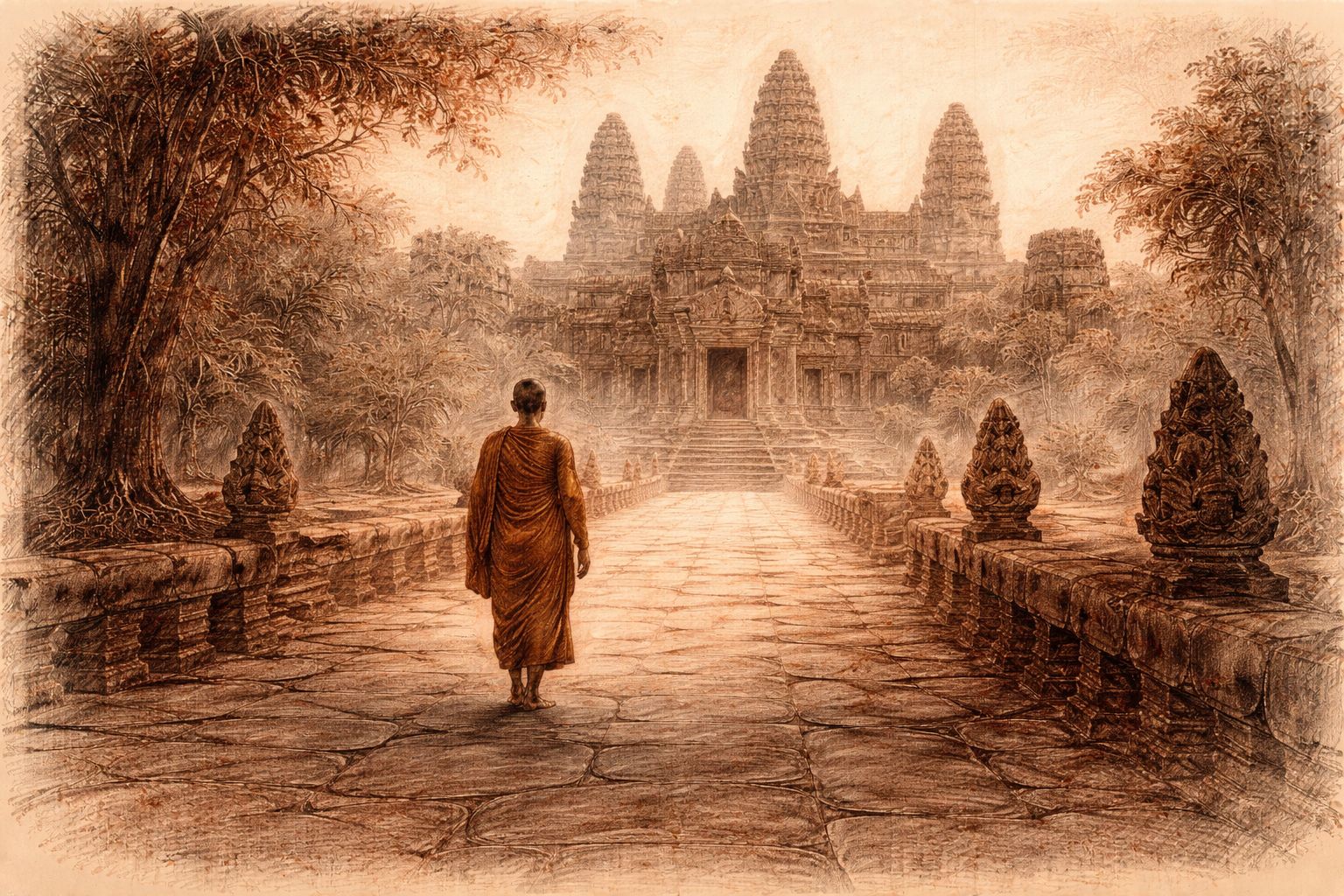
From Mountain to Monastery
2 min read
Angkor Wat survived by learning to change its posture. Built as a summit for gods and kings, it became a place of dwelling for monks and pilgrims. As belief shifted from ascent to practice, stone yielded to routine—and the mountain learned how to remain inhabited.
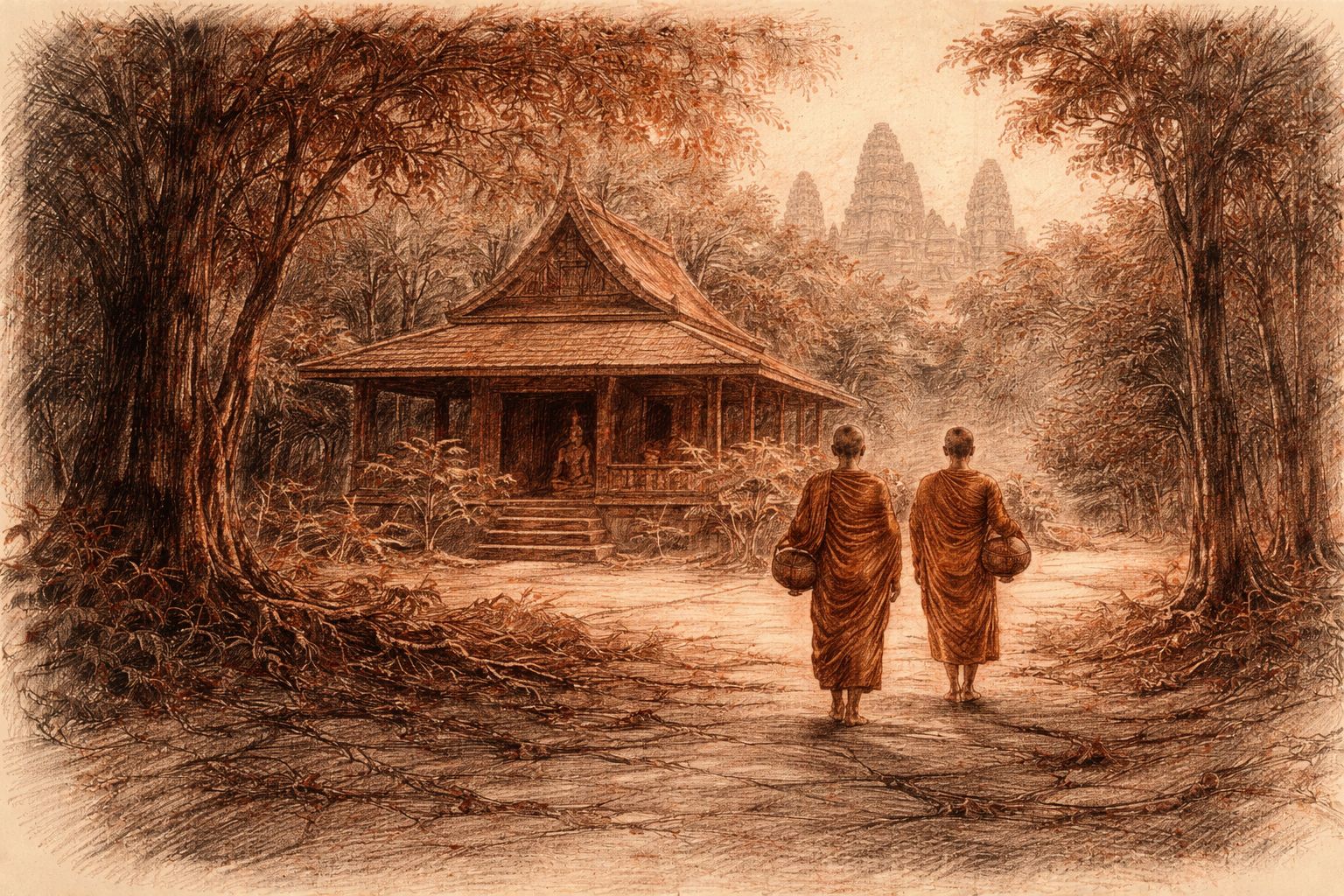
Why Theravada Could Outlast Stone
2 min read
Theravada endured by refusing monumentality. It shifted belief from stone to practice, from kings to villages, from permanence to repetition. What it preserved was not form but rhythm—robes, bowls, chants, and lives lived close together—allowing faith to travel when capitals fell and temples emptied.
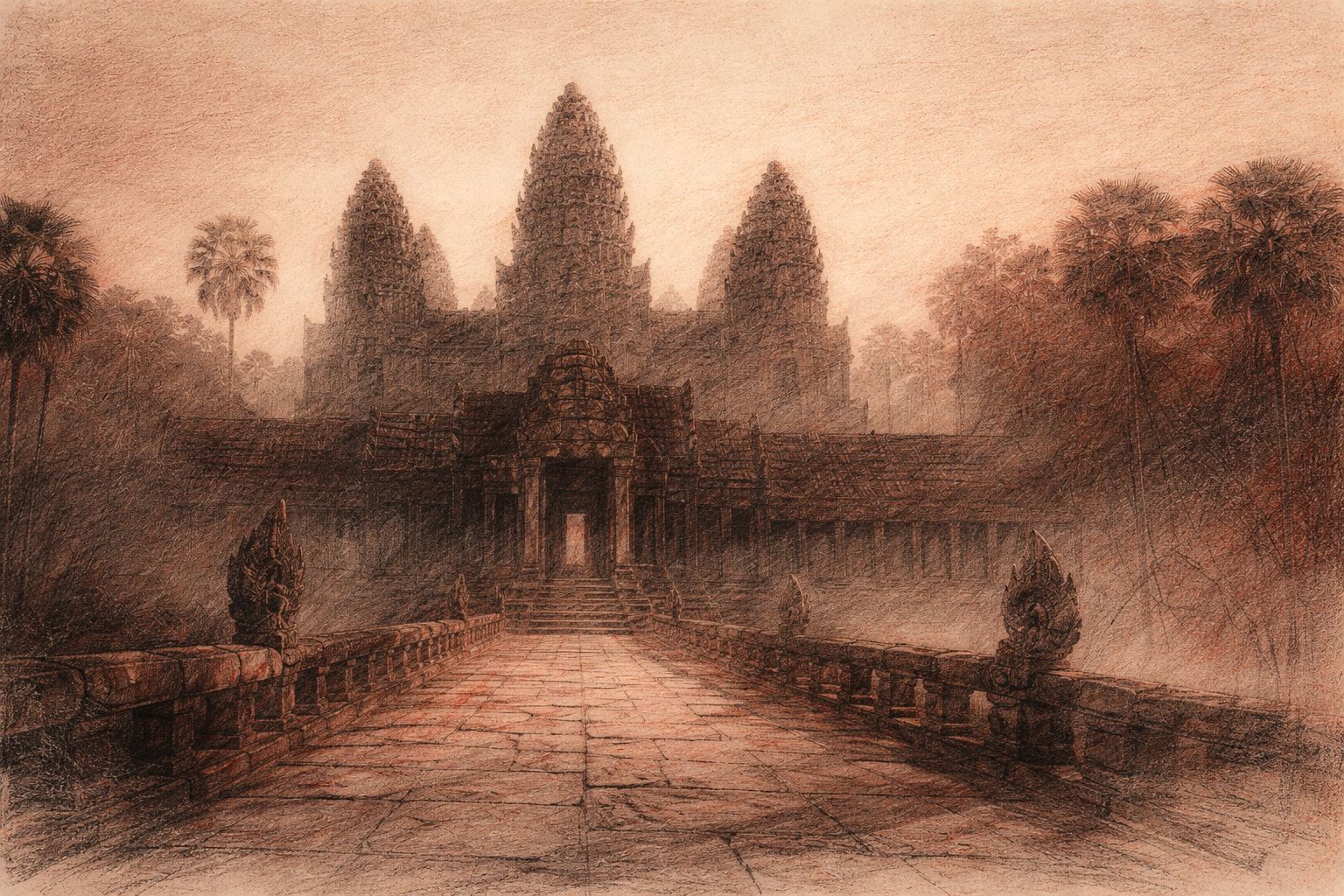
The End of Sanskrit at Angkor
2 min read
The final Sanskrit inscription at Angkor does not announce an ending. It simply speaks once more, with elegance and certainty, into a world that had begun to listen differently. Its silence afterward marks not collapse, but a quiet transfer of meaning—from stone and proclamation to practice, breath, and impermanence.
Join My Studio Journal
Receive occasional letters from my studio in Siem Reap—offering a glimpse into my creative process, early access to new fine art prints, field notes from the temples of Angkor, exhibition announcements, and reflections on beauty, impermanence, and the spirit of place.
No noise. No clutter. Just quiet inspiration, delivered gently.
Subscribe and stay connected to the unfolding story.
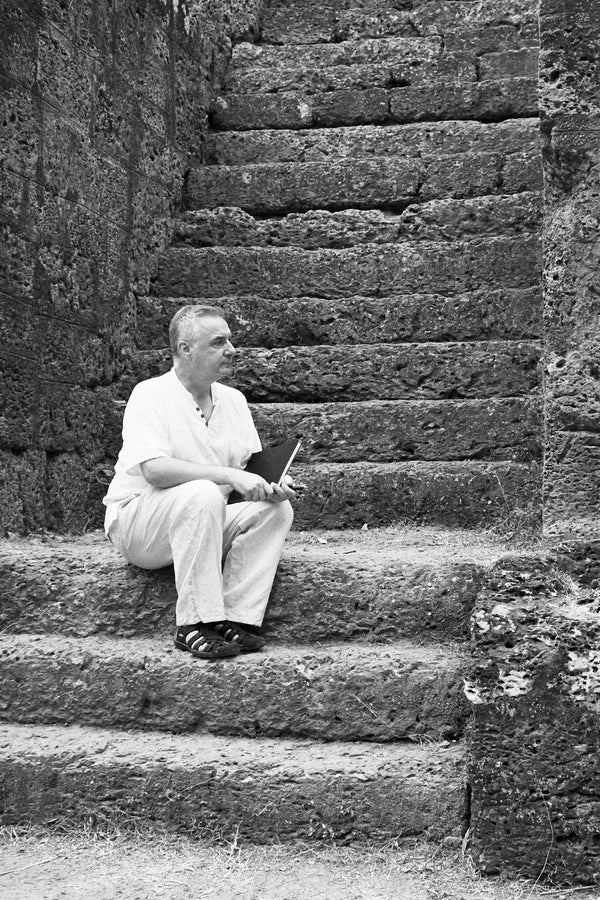
Join My Studio Journal
Receive occasional letters from my studio in Siem Reap—offering a glimpse into my creative process, early access to new fine art prints, field notes from the temples of Angkor, exhibition announcements, and reflections on beauty, impermanence, and the spirit of place.
No noise. No clutter. Just quiet inspiration, delivered gently.
Subscribe and stay connected to the unfolding story.
